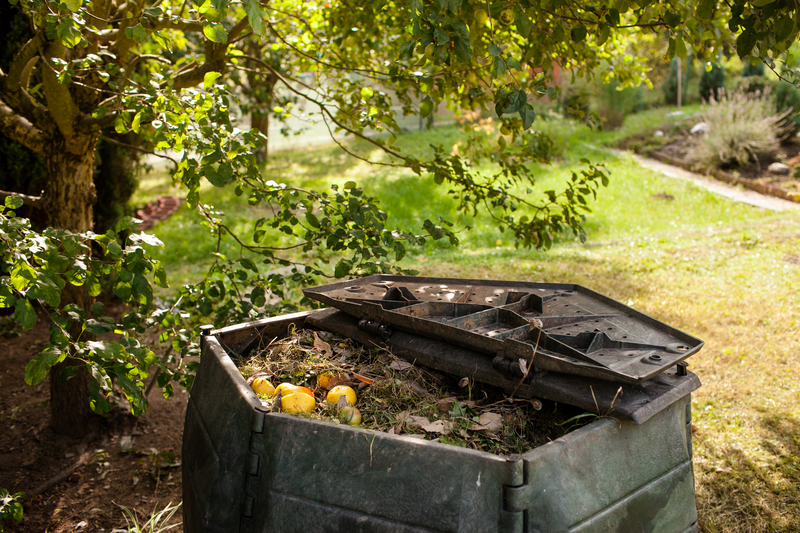Strategies to Tackle Marine Plastic Waste
Posted on 16/12/2024
Marine plastic waste has emerged as a significant environmental issue, affecting marine life, ecosystems, and even human health. As plastic production and consumption continue to rise, the inevitable increase in plastic waste poses a dire challenge. Tackling this problem requires a multifaceted approach, encompassing both preventive measures and remedial actions. This article aims to provide a comprehensive guide on various strategies to address marine plastic waste effectively.
Understanding the Scope of Marine Plastic Waste
Marine plastic waste refers to plastic debris that ends up in the ocean, either directly from coastal areas or indirectly via rivers and waterways. This includes items like plastic bottles, bags, fishing nets, and microplastics. The potential impacts are profound: marine animals ingest or become entangled in plastic, ecosystems are disrupted, and the food chain can be contaminated, ultimately affecting human health.

Reducing Plastic Consumption
One of the foremost strategies to combat marine plastic waste is to reduce plastic consumption at its source:
- Promoting Reusable Products: Encouraging the use of reusable bags, bottles, and containers can significantly cut down single-use plastic items.
- Legislation and Policies: Governments can implement policies to ban single-use plastics or levy taxes on plastic products to disincentivize their use.
- Consumer Awareness: Public awareness campaigns can educate consumers on the environmental impacts of plastic and promote sustainable alternatives.
Enhancing Waste Management Systems
Effective waste management systems are crucial for preventing plastic waste from entering the marine environment:
- Improving Collection and Recycling: Enhancing the efficiency of waste collection and expanding recycling facilities can ensure that plastic waste is properly managed.
- Integrating Waste Management Practices: Adopting integrated waste management practices, including sorting, composting, and energy recovery, can minimize plastic waste.
- Infrastructure Development: Developing infrastructure, particularly in developing countries, is essential for effective waste management and to mitigate plastic leakage into the ocean.
Innovative Technologies and Solutions
Technological advancements offer promising solutions for addressing marine plastic waste:
- Biodegradable Plastics: Research and development in biodegradable plastics that break down more quickly than conventional plastics can help reduce long-term marine pollution.
- Plastic-to-Fuel Conversion: Technologies that convert plastic waste into fuel are gaining traction, providing a way to recycle plastic and generate energy simultaneously.
- Advanced Recycling Techniques: Techniques such as pyrolysis and chemical recycling can break down plastic waste into its basic components for reuse.
Marine Cleanup Initiatives
Cleanup initiatives play a key role in removing existing plastic waste from marine environments:
- Beach Cleanups: Local community groups and NGOs often organize beach cleanups to collect plastic waste and raise awareness.
- Ocean Cleanup Projects: Innovative projects, such as The Ocean Cleanup, deploy advanced technologies to capture plastic waste from the ocean and rivers.
- Fishing Net Recycling Programs: Programs that recover and recycle discarded fishing nets - often major plastic pollutants - can significantly mitigate marine plastic waste.
International Collaboration and Regulation
Combating marine plastic waste requires coordinated international efforts:
- Global Agreements: International agreements, such as the United Nations' initiatives, aim to unite countries in the fight against marine plastic waste.
- Corporate Responsibility: Corporate-led initiatives and partnerships can promote the adoption of sustainable practices across global supply chains.
- Research and Data Sharing: Collaborative research and data sharing among countries and organizations can enhance understanding and management of marine plastic waste.

Community Engagement and Education
Effective strategies must involve local communities and foster a sense of responsibility:
- Educational Programs: Schools and community organizations can implement educational programs to teach the importance of reducing plastic waste.
- Citizen Science Initiatives: Engaging citizens in data collection and monitoring plastic pollution can contribute to research and raise public awareness.
- Environmental Advocacy: Empowering community leaders and activists to advocate for environmental protection and sustainable policies can drive grassroots change.
Conclusion
Marine plastic waste is a complex, multifaceted problem that requires a comprehensive and integrated approach. From reducing plastic consumption to enhancing waste management systems, leveraging innovative technologies, engaging in marine cleanup initiatives, fostering international collaboration, and educating communities, every strategy plays a vital role. Combatting marine plastic waste is not just the responsibility of government bodies or large organizations; it involves everyone. Through collective actions and sustained efforts, it is possible to mitigate the adverse effects of plastic pollution and protect our marine ecosystems for future generations.
By tackling marine plastic waste from every possible angle, we can move towards a cleaner, healthier, and more sustainable world.


 020 3744 5548
020 3744 5548












